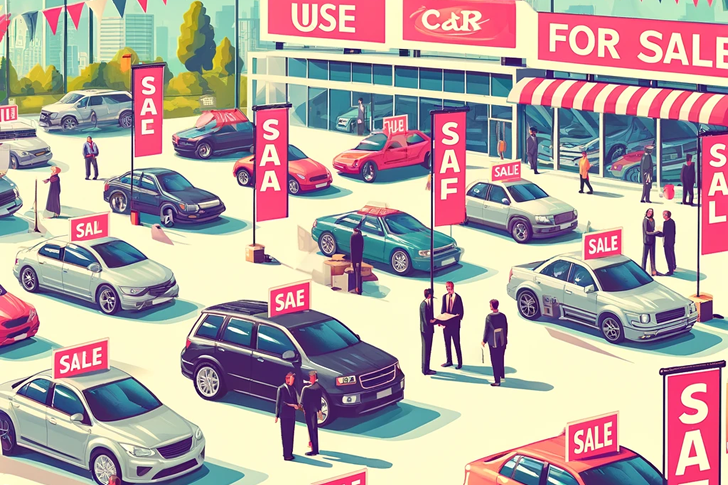Used Car In USA: What To Expect Today
In 2024, the US used car market evolves with economic shifts, consumer trends, and industry changes. We analyze current trends and provide insights for various budgets.

Market Overview
The used car market has always been a barometer for economic conditions, reflecting both consumer confidence and spending power. As of May 2024, the market is characterized by a diverse range of prices and options, accommodating buyers at nearly every budget level.
Compared With Past Market
In 2021, there was a significant increase in used car prices, attributed mainly to reduced supply due to slowed production and fewer trade-ins during the pandemic. Prices rose by as much as 36% during this period. However, in the following year, 2022, there was a slight correction with prices falling by 7%. This adjustment reflected a stabilization as supply chains began to recover and production increased.
As of 2024, the trend indicates that used car prices are holding steady after a period of decline in late 2023. This is primarily due to a continuing shortage of used cars, which is expected to persist throughout the decade. The shortage stems from previous production cuts and the focus of manufacturers on high-margin vehicles, particularly electric vehicles (EVs), which reduces the availability of affordable used cars.
Factors Influencing Prices
Several factors currently influence the pricing of used cars in the USA:
- Economic Recovery: Post-pandemic economic recovery has led to increased demand for vehicles as consumers return to physical workplaces and resume normal activities.
- Supply Chain Issues: Ongoing disruptions in the automotive supply chain have resulted in new car shortages, pushing more buyers towards the used car market.
- Interest Rates: With fluctuating interest rates, financing options have also changed, impacting how consumers approach used car purchases.
Cars Under $1,000
Finding a reliable car under $1,000 is quite challenging. Vehicles in this price range often have high mileage, significant wear and tear, or may require costly repairs. Here are some tips if you’re considering this budget:
- Expect older models: Cars priced under $1,000 will typically be older, perhaps even 15 to 20 years old, with over 150,000 miles.
- Check auctions and private sellers: Often, the best deals at this price point come from auctions or direct sales by owners, who may be looking to quickly offload an older vehicle.
- Be prepared for repairs: Vehicles under $1,000 may not be in the best condition. Set aside funds for immediate repairs that may be necessary to make the car roadworthy.
Cars Under $3,000
At this slightly higher price point, buyers can expect a wider range of options and a better chance of finding a vehicle in decent condition. Here are some recommendations based on recent market research:
- 2006 Chevrolet Impala: Known for its reliability and roomy interior, it’s a good choice for those needing a larger car on a budget.
- 2009 Hyundai Sonata: Offers a comfortable ride and a well-finished interior, and is generally available for under $3,000.
- 2005-2007 Ford Focus: Noted for its enjoyable driving dynamics and relatively low cost of maintenance.
- 2003 Honda Accord: While older, Accords are valued for their durability and smooth driving experience.
- 2004 Toyota Prius: Ideal for those looking for fuel efficiency, though be aware of potential battery replacement costs which can be high.
Where to Buy
- Online platforms: Websites like CARFAX, Autotrader, and Craigslist can be good sources to find these vehicles. They often provide vehicle history reports and other crucial details.
- Local dealerships: Some local dealers might offer older models at these price points, and buying from a dealer can sometimes include benefits like a short-term warranty or trade-in options.
- Public auctions: Government or public car auctions are places where you can find cars at lower prices, though it’s important to inspect the cars thoroughly as they are often sold as-is.
Shopping Tips for Budget Buyers
- Prioritize reliability over features: At lower price points, focus on the mechanical condition and reliability of the car rather than cosmetic aspects or high-end features.
- Get a pre-purchase inspection: Always have the car inspected by a trusted mechanic before finalizing any purchase. This can help avoid costly repairs down the line.
- Negotiate the price: Especially in private sales, there’s often room to negotiate. Don’t hesitate to make an offer the asking price if you believe it’s justified based on the car’s condition and market value.







Recent Comments